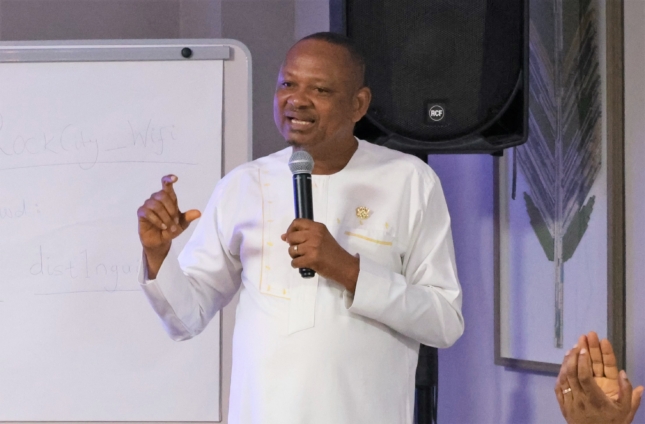The Health Ministry wants a strong collaboration with academia to prepare graduates for meaningful contributions to the health sector.
Director of Human resources, Dr. Kwesi Asabir observed the gap between academia and Ministry has produced graduates with misplaced roles.
“At times, there’s that barrier between academia and practice. Academia will come out with appropriate ideas but the implementer, ministry is cut off. So people go through an excellent programme, they come to the ministry and we tell them, we don’t have a place for you,” he revealed.
Dr. Asabir made this comment at a retreat organized by Mastercard Foundation Africa Higher Education Health Collaborative in Kwawu.
The primary objective of the Mastercard Foundation Africa Higher Education Health Collaborative is to build and strengthen the capacity of healthcare students and professionals to meet the growing demand for Primary Health Care (PHC) in Ghana.
KNUST is one of the eight partners of the Higher Education Collaborative in Health with the aim to contribute to all three pillars of the health strategy: Health Employment, Health Entrepreneurship, and Health Ecosystems.
The Health Entrepreneurship pillar aims to develop an entrepreneurial mindset and culture that supports entrepreneurs to create meaningful innovations and employment opportunities in the health sector.
The Health Ecosystem pillar also aims to train and prepare a new generation of talented professionals with the broad sets of skills required to drive equitable and inclusive growth.
The Health Employment pillar also aims to expand and improve current capacities to train primary healthcare workers. This workshop is under the auspices of the health employment pillar.
Dr. Asabir stressed the need to approach health as business for sustainable economic development.
“We always think of it as a social sector. We should look at healthcare as a business venture. If the population is not healthy, we can develop a nation,” he said.
The 3-day retreat provided the platform to forge effective strategies to fulfil the Collaborative’s ideals in the coming years.
The Principal Investigator of the Africa Higher Education Health Collaborative, Prof. Ellis Owusu-Dabo emphasized the importance of equity and diversity in the operations of the Collaborative.
“For the Collaborative, issues of gender and persons with disabilities are very critical to us. It’s important we put some of these things into action as a country,” he said.
Latest Stories
-
Women’s FA Cup semis: Army Ladies face FC Epiphany; Police Ladies up against Supreme Ladies
1 hour -
Police haul in Kwadaso MP, EC officials in probe of Ejisu by-election ‘bribery’ case
2 hours -
Ghana’s press freedom ranking: Are we actually improving?
3 hours -
Reflections: 50 Lessons at 50
4 hours -
NCCE briefs Council of State on civic plans for 2024
4 hours -
Ecobank Group reports Profit Before Tax of $581m, on net revenue of $2.1bn for 2023
4 hours -
More businesses are working to move out of Ghana – Food and Beverages Association
4 hours -
Empowering Ghana’s Environmental Narrative: Celebrating World Press Freedom Day 2024
4 hours -
AG hasn’t closed investigations into Cecilia Dapaah’s case – Spokesman
4 hours -
Ghana Tourism Authority celebrates ‘Feast Ghana’ on May Day with a Taste of Culture
4 hours -
Fella Makafui gets emotional and teary-eyed reacting to old video with Medikal
4 hours -
FBNBank Ghana changes to FirstBank Ghana to align with Group identity
5 hours -
Agogo Presby Hospital celebrates staff over zero maternal death record
5 hours -
Ghana isn’t broke to procure high and low-voltage poles – Energy Minister
5 hours -
Appiatse residents handed keys to newly constructed homes
5 hours

